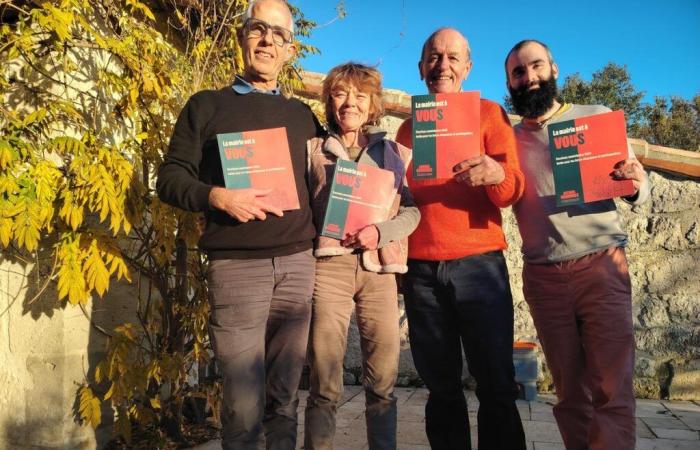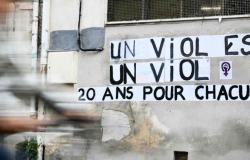“The town hall is yours! From 2026? » It is through this slightly provocative appeal that citizens are invited to come and discuss on Wednesday, in Agen (1). At the helm, Martin Lavoyer, Laurence Ville, Jean-Pierre Ladet and Jérôme Michelet: a quartet of Lot-et-Garonnais from civil society, members of the national Common Actions network, which works to “restore the power to act to residents “. During this evening open to all, and not just to the people of Agene, they will present the functioning of the participatory citizen lists, the “LCP”, with a view to the next municipal elections. Elected officials who want to change their practices are welcome, as are those who are involved, as long as they leave their partisan ideas in the locker room.
“The goal is to make as many people aware of the process as possible,” says Laurence Ville. And more if affinities…
What is an LCP?
Participatory democracy, like eco-responsibility, is used in every way. So how do we recognize a participatory citizen list? To make a long story short, let's first sweep away what it is not: a partisan list, a list whose head is designated internally/upstream and with an already written program. The latter must be co-constructed and the municipality, once in place, undertakes to ratify the decisions as defined by the participatory assembly. This must be as heterogeneous as possible: cultural diversity, gender diversity, inter-generational, socio-professional… for maximum representativeness. “In a citizens' committee, there are elected officials, municipal agents, but there may be people drawn at random,” explains Jérôme Michelet. In general, they say: ''I'm not trained…'' but that doesn't matter, we tell them: ''Come anyway, because your opinions, your desires, your frustrations, your projects interest the community .''It repoliticizes people in the good sense of the word. »
Martin Lavoyer, retired farmer and “young” elected official in Brugnac, is confident: this type of meeting is fertile ground and the municipal field, “the ideal place to start”. He himself left the Rencontres de Vaour (81), in August, with “the little spark” and three Lot-et-Garonnais contacts to embark on the adventure. Since then, they have traveled the department together.
“In Agen, we don’t come to overturn the table, we come to plant a seed”
“There is a desire in medium-sized municipalities,” he says, citing the example of the city of Poitiers, administered by a citizens’ committee. But also Tonneins, where an LCP has, according to him, “every chance for 2026”. As for Agen, “there have been attempts at participatory democracy, particularly with neighborhood councils. It didn't always work very well and caused a lot of frustration. What is new with Common Actions is that we learn how to do it. »
Cure for mayor blues
Jérôme Michelet, who was trained in these tools, will wear the hat of mediator. “In Agen, we are not coming to overturn the table, we are coming to plant a seed”, that of the desire to get involved in the life of the city, to commit collectively. A strong issue, believes this thirty-year-old from Temple-sur-Lot, while the Association of Rural Mayors of France fears a shortage of candidates for the next election. “We are in a society where we consume politics, with consumers who can be very demanding. »
So, Laurence Ville, a professional nurse, and her companions prescribed shared governance that would cure both the mayors' blues and those of those administered. Considering that “residents are best placed to know the needs in a municipality”, they defend a model in which “the mayor is not the one who decides, but a facilitator, who helps citizens to make decisions themselves for the common good.” Without demagoguery or false promise of consensus, adds Jérôme Michelet: “We cannot always get everyone on board. Sometimes I fall in line with the majority, even if it's not 100% what I would have wanted. »
On Wednesday evening, extracts from a film on the experience of Saillans, in Drôme, will be shown, in order to show that faced with shared concrete needs, residents are capable of ignoring their ideological differences. “Today, there are parties which arouse anger in people. We want to find joy in politics. »
(1) Meet at the Stadium rotunda, Cours Washington, at 7 p.m., this November 27. Other meetings will follow, including one in Marmande, Beyssac room, on December 3.






